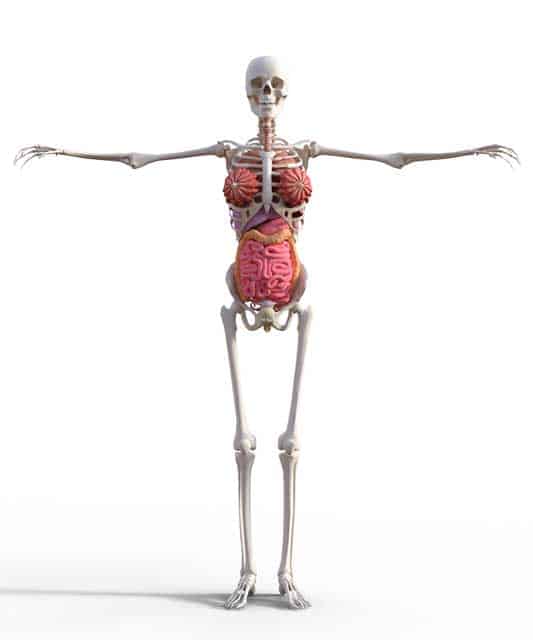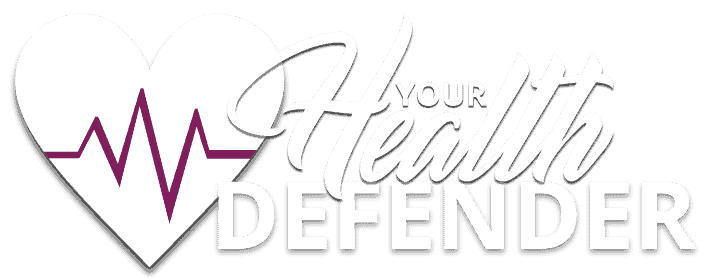Disclosure: I only recommend products I would use myself and all opinions expressed here are our own. This post may contain affiliate links that at no additional cost to you, I may earn a small commission. As always, consult your medical practitioner before making large lifestyle changes.
There are 18 nutrients necessary for good bone health. Are you getting enough of each one of these?
In a USDA survey of 21,500 people, nutrient intake of 10 nutrients was analyzed.
Question: How many people do you think were consuming 100% of the RDA of the 10 nutrients?
Before you guess, do you know what RDA means?
It’s the “Required Daily Amount” of nutrients to SUSTAIN HEALTH, to prevent deficiency diseases in healthy people. RDA’s have nothing to do with optimum health.
In our world of holistic approaches, the RDA’s often stand for Ridiculous Daily Amounts. So now, how many out of 21,500 people do you think were consuming the (ridiculously low) RDA’s of the 10 nutrients looked at?
Answer: NOT ONE. No one was consuming 100% of the RDA’s in this study!
The First Five Essential Bone-Building Nutrients
The most important of the bone building nutrients begin with: Magnesium, Vitamin D3, Vitamin K, Calcium, Collagen.1
The biggest misunderstanding about bone health is the credit given to the importance of calcium.
Yes, calcium IS important, BUT not alone.
Think of calcium as the bricks in your brick home and the mortar is made up of many other nutrients, particularly magnesium, without which, the bricks would not effectively hold together nor build anything.
Magnesium
Magnesium is one of the most important nutrients in your “mortar” because calcium cannot build bones nor prevent osteoporosis without adequate levels of magnesium.
Osteoporosis is described by Dr. Carolyn Dean, MD, ND in The Magnesium Miracle as “low magnesium in the presence of elevated calcium, with or without Vitamin D, triggers a cascade of events leading to bone loss.”2
WHAT? Bone loss is triggered by low magnesium & elevated calcium? WOW. This is a game changer… or should be!
The average diet today not only is low in magnesium, it also has a shocking 10:1 ratio of calcium to magnesium. This ratio, according to Dr. Carolyn Dean, is a walking time bomb leading to not just impaired bone health, but also heart disease. The ideal ratio, according to her, is 1:1.
So many people are on calcium supplements.
Susan Brown, Ph.D., director of the Osteoporosis Education Project in Syracuse, NY, warns:
“The use of calcium supplementation in the face of magnesium deficiency can lead to a deposition of calcium in the soft tissue such as the joints, promoting arthritis, or in the kidney, contributing to kidney stones.”4
Some studies further show that all that extra calcium can be deposited in soft tissue, causing atherosclerosis, gallstones, kidney stones, heel spurs, and breast tissue calcification, instead of being directed to the bones.5
Important benefits for you to know about magnesium are:
- Magnesium controls the entry of calcium into each and every cell. Without adequate magnesium, too much calcium gets inside the cell. This can result in muscle cramping, blood vessel constriction, migraine headaches, and even feelings of anxiety.6
- Magnesium also keeps calcium dissolved in the blood so that it will not produce kidney stones. In fact, taking calcium without magnesium for osteoporosis can actually promote kidney stone formation!7
- Magnesium is required to activate an enzyme that is necessary to form new bone!
- Magnesium converts vitamin D into its active form so that it can help with calcium absorption. If you are taking Vitamin D3 without consuming enough magnesium in your diet and/or supplements, you are wasting much of your Vitamin D.
- You may be pleased to know that magnesium also helps keep adrenal stress hormones in check and also helps maintain normal brain function.
Dr. Dean recommends an ideal dietary and supplement ratio of 1:1, calcium to magnesium. Dr. Mercola sites the Natural Medicine Journal recommending supplementing with 250-400 mg a day of magnesium.8 Dr. Susan Brown, director of the Osteoporosis Education Project in Syracuse, NY recommends a daily dose of 450 mg of magnesium for the prevention and treatment of osteoporosis.9 Dr. Christiane Northrup recommends a dose of 400 to 800 per day, depending on the quality of your diet.10
Vitamin D3
Without Vitamin D, your body cannot properly absorb calcium and the bones and teeth become soft and poorly mineralized. Many studies document that up to 80% of all hip fracture patients show Vitamin D deficiencies.11 Very encouraging is the fact that with just 400 IU of Vitamin D in addition to 800 mg of calcium, postmenopausal women have shown a gain in hip bone mass at ages when they should have been losing it according to Western medicine!12
It is vital that you have your vitamin D level checked once or twice a year. This is a lot easier than you would think. In fact, there are even home testing kits available that help you better understand the amount of Vitamin D in your body. OmegaQuant offers a number of testing kits that give you a better look at your own health. An optimal level of Vitamin D is from 40-100 ng/ml. According to Michal Holick, M.D., Ph.D., chief of Endocrinology, Metabolism, and Nutrition at Boston University School of Medicine, blood levels less than 20ng/ml can CAUSE osteoporosis. Dr. Northrup recommends at least 2,000 IU per day.

Vitamin K1 and K2
Vitamin K1 functions as a cofactor for the enzyme that catalyzes a protein, osteocalcin, produced by your osteoblasts that is responsible for bone formation.
Vitamin K2 is the “director,” moving calcium in the body into the bones and teeth, rather than the blood vessels as atherosclerosis or in other inappropriate locations, such as bone spurs causing arthritis. In fact, K2 can actually reverse the calcification that is already present in soft tissues. In one study a 37-50% decrease in calcification took place with Vitamin K supplementation. 13 14
Similar to Vitamin K1, Vitamin K2 also activates the protein hormone, osteocalcin, which is needed to bind calcium into the matrix of your bone.
Vitamins K1 and K2 work synergistically with calcium, magnesium and Vitamin D to build your strong healthy bones. Ideally, your Vitamin D3 supplement also includes Vitamin K1 and K2 with it.
Calcium
Calcium works synergistically with Vitamin K2, magnesium and Vitamin D. In fact, taking calcium without vitamin D is almost useless, according to Dr. Christiane Northrup.15 She goes further to say that supplementing with calcium can be valuable. She recommends taking 1,000 to 1,500 mg per day in the form os aspartate, citrate, or lactate. If you consume dairy products, or other calcium rich foods, you may not need this much. Dr. Mercola sites The Natural Medicine Journal recommending 1,000 – 1,500 mg/day of calcium to maintain bone health, including food sources and supplements.16
Have you heard about Tums as a source of calcium? Considering that Tums reduces your stomach acid, your calcium absorption will be inhibited and Tums will increases your risk of kidney stones. Way better sources for calcium supplementation are available.
Collagen
Collagen is the most abundant component of the extracellular bone matrix. Collagen has been shown to increase osteoblast activity, which acts on bone remodeling and also to increase the external diameter of cortical areas of the femurs.17 18 Another study found that collagen exerts a beneficial effect on osteoporosis by increasing the organic substance content of bone.19 In essence, it has been concluded that there are potential benefits in using collagen in treatment of osteoarthritis and osteoporosis, with a high level of safety.20
Little known fact: People who have stronger bones also have smoother skin. Bone health and skin health are in lockstep because they both need optimal collagen production!21 Skin needs it to be firm and supple. Bones need it to be strong and flexible.
Would you supplement with collagen if you knew it would improve your skin elasticity and your skin moisture?
A double-blind, placebo-controlled study resulted in statistically significantly higher skin elasticity levels after 8 weeks of intake and after 4 weeks of follow-up treatment.22 Very encouraging!
So if you won’t make needed changes for your bones, do it for your looks! 🙂
Nutrients Important for Bone RE-Building
In addition to those major bone-building nutrients, these, too, are very important in bone remodeling: Vitamin C, Beta Carotene, Boron, Manganese, and Trace Minerals.
Vitamin C
Vitamin C is important in collagen synthesis and repair. Dr. Northrup recommends is 2,000 mg per day.23
Beta Carotene
Beta Carotene, converted to Vitamin A in the body, promotes healthy intestinal epithelium, which is important for optimal absorption of nutrients. Vitamin A works with magnesium for balanced bone health.
Boron
Boron is essential for magnesium and calcium metabolism. It has been found to reduce urinary calcium loss. Dr. Northrup recommends a diet rich in fruits, nuts, and veggies to get a minimum of 2 mg per day, and states that supplements can be taken up to 12 mg per day.24
Manganese
Manganese plays an essential role in bone cartilage and bone collagen formation and is required for bone mineralization.25 How essential is it? In one conclusive study, osteoporotic women were found to have one-quarter the manganese levels of the nonosteoporotic woman.26
Trace Minerals
Effects of trace elements on skeletal metabolism and tissue properties may be indirect through regulation of macro mineral metabolism, or direct by affecting osteoblast or osteoclast proliferation or activity, or finally through incorporation into the bone mineral matrix.27 The minerals work together.
A New Addition to the Bone-Building Supplements: Pycnogenol
Pycnogenol, extracted from French maritime pine bark, has been shown to inhibit bone mineral density loss. Pycnogenol treatment to osteopenia rats resulted in a remarkable decrease in bone turnover biomarkers, indicating prevention of bone loss and repaired bone microarchitecture.28 In addition, joint health benefits have been illuminated with pycnogenol supplementation. One study showed a reduction in overall knee osteoarthritis symptoms by 21%.29
You Can Have a New Body If You Want! (Literally…)
You can have a new body if you want to. In fact, whether you want to or not, you WILL have a new body over less time than you might think.
The question is, will it be in better shape or worse shape than your body today? It’s up to you!
In just one year 98% of all the atoms in your body will be replaced.
You will have new skin in five weeks!
In 6 weeks, you’ll have a new liver!
An estimated 10% of your skeleton is replaced each year.30

In 10 years, you WILL have a completely new skeleton!
Your new body is underway! What will you do differently to make it better? Will you improve your sleep? Are you going to deliberately choose more low acid foods, … more real food, hopefully organic? Will you get serious about supplementing with nutrients to ensure your optimum health? Are you going to prioritize getting bone-strengthening exercise every day?
The future of your one and only amazing earth suit is in your hands!
If you need help finding the right supplements for you and your specific bone needs, let me help! I’ve already created a bone health starter kit in my shop. Just click here.
References
1 https://takecontrol.substack.com/p/sleep-bone-density?s=r#footnote-11
2 Carolyn Dean, MD, ND, The Magnesium Miracle (New York: Ballantine Books, 2017) 21
3 Carolyn Dean, MD, ND, The Magnesium Miracle (New York: Ballantine Books, 2017) 299
4 Susan Brown, Better Bones, Better Body. (Keats, New Canaan, CT, 1996)
5 Carolyn Dean, MD, ND, The Magnesium Miracle (New York: Ballantine Books, 2017) 304
6 B.S. Levine and J.W. Coburn, “Magnesium, the Mimic/Antagonist of Calcium,” New England Journal of Medicine, vol. 310, no. 19 (May 10, 1984), pp. 1253-5
7 Christiane Northrup, M.D., Women’s Bodies, Women’s Wisdom (New York: Bantam Books, 2010) 736
8 https://takecontrol.substack.com/p/sleep-bone-density?s=r#footnote-11
9 Carolyn Dean, MD, ND, The Magnesium Miracle (New York: Ballantine Books, 2017) 298
10 Christiane Northrup, M.D., Women’s Bodies, Women’s Wisdom (New York: Bantam Books, 2010) 565
11 Susan Brown, Better Bones, Better Body. (Keats, New Canaan, CT, 1996) 100
12 Dawson-Hughes, et al., “A controlled trial of the effect of calcium supplementation on bone density in postmenopausal women,” New England Journal of Medicine 323 (1990): 878-83
13 https://pubmed.ncbi.nlm.nih.gov/17138823/
14 https://ashpublications.org/blood/article/109/7/2823/125641/Regression-of-warfarin-induced-medial
15 Christiane Northrup, M.D., Women’s Bodies, Women’s Wisdom (New York: Bantam Books, 2010) 566
16 https://takecontrol.substack.com/p/sleep-bone-density?s=r#footnote-11
17 https://pubmed.ncbi.nlm.nih.gov/19895915/
18 https://pubmed.ncbi.nlm.nih.gov/24926875/
19 https://pubmed.ncbi.nlm.nih.gov/19957932/
20 https://pubmed.ncbi.nlm.nih.gov/11071580/
21 https://www.eurekalert.org/news-releases/636562
22 https://pubmed.ncbi.nlm.nih.gov/23949208/
23 Christiane Northrup, M.D., Women’s Bodies, Women’s Wisdom (New York: Bantam Books, 2010) 565
24 Christiane Northrup, M.D., Women’s Bodies, Women’s Wisdom (New York: Bantam Books, 2010) 566
25 Strause, L, and P. Saltman, “Role of Manganese in Bone Metabolism,” (Washington, D.C.: American Chemical Society, 1987), 46
26 Raloff, J., “Reasons for Boning Up on Manganese,” Science News 130 Sept (1986): 199
27 https://www.medicalnewstoday.com/articles/320444
28 https://pubmed.ncbi.nlm.nih.gov/30467628/
29https://onlinelibrary.wiley.com/doi/abs/10.1002/ptr.2461
30https://www.medicalnewstoday.com/articles/320444






